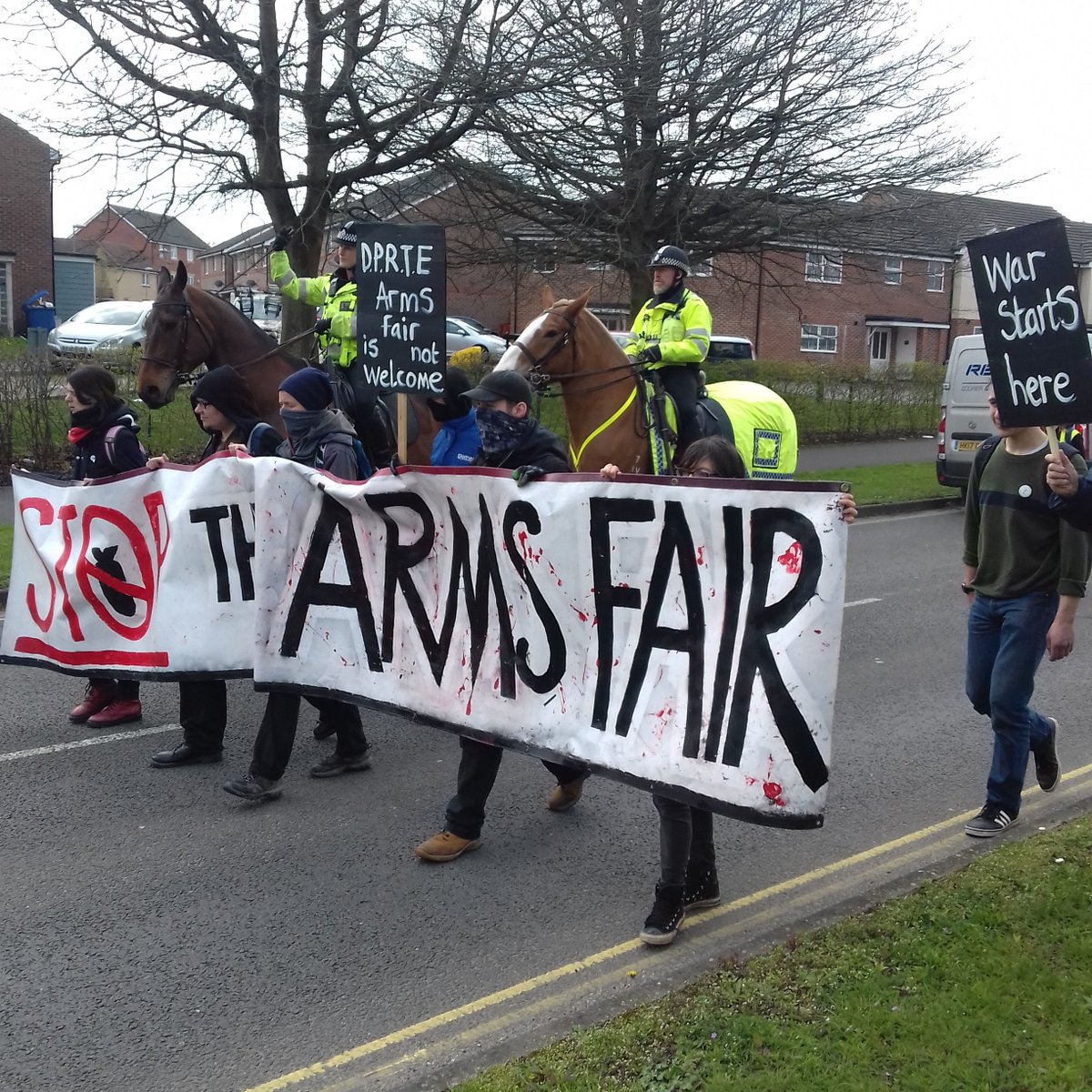Dear Ecotricity,
We are writing to you regarding your contract with G4S Utility Services, which provides you with meter reading services.
Ethical issues
Your Environmental Policy (http://www.ecotricity.co.uk/about-ecotricity/our-eco-credentials/our-environmental-policy) states that you “take into account ethical and social issues, biodiversity and sustainability when making all strategic and operational decisions.”
Many of your 50,000 customers – who are presumably your customers because of such ethical considerations – would not consider your contract with G4S – a company accused of serious human rights abuses, violation of international law and profiting from the suffering of people in the UK and elsewhere in the world – to be taking ethical and social issues into account. Many of them would indeed be disappointed to hear that you describe switching your meter reading agent to G4S as “a positive change”.
Your Environmental Policy further states that you “will not work with organisations directly involved in: factory farming, animal slaughter, animal testing, arms, tobacco, nuclear power, GMO’s or anything else we consider to be unethical, immoral or just plain wrong.” Please find below details of various “unethical, immoral or just plain wrong” activities that G4S is involved in.
Please also note that Good Energy has decided to drop G4S as its meter reading provider over similar issues (see here – http://www.corporatewatch.org/?lid=4459 for details). Many Good Energy customers had complained to the company expressing their disappointment and threatening to switch to other providers, including Ecotricity. We urge you to follow suit and drop G4S if you do not wish to lose customers over this contract.
Accountability and complicity
It is evident that G4S treats itself as a single entity and has grown and prospered as such. This is also clear in the company’s own marketing and publicity material and its corporate structure, where it treats itself as a coherent whole (see here – http://www.g4s.com/en/Who%20we%20are/Where%20we%20operate/, for example).
As this is the case, the conduct of one division of the company is the conduct of G4S as a whole. If one division is involved in unlawful or unethical activities and profits from such conduct, then the parent company, and therefore all other divisions, must necessarily be implicated in such misconduct as all decisions are made by the same directors and board members and all divisions would benefit from the growth and profits achieved by any particular division.
Indeed, G4S would not have been able to acquire AccuRead in 2008 and rebrand it as G4S Utility Services if it was not for the growth achieved through its other businesses.
Involvement in unethical industries
G4S is primarily a security company. 52% of the company’s revenue comes from providing security services to other private companies and wealthy individuals (what G4S calls “secure solutions – non-government”), and 27% comes from public contracts (“secure solutions – government”).
In addition to manned security, which accounts for over 60% of the company’s “secure solutions” work, G4S provides a range of other “security services”, an increasingly broad definition that now includes security systems (CCTV, etc.), monitoring services, and ‘integrated security services’ for entire sites or estates.
Industry sectors ‘secured’ by G4S include energy (oil, gas and nuclear operations around the world), mining (especially in Africa and Latin America) and aviation (over 100 airports and more than 80 airlines in more than 40 countries worldwide). For a more detailed overview of G4S’ businesses, please see here – http://www.corporatewatch.org/?lid=337.
G4S’ involvement in these unethical and environmentally destructive industries goes against Ecotricity’s Environmental Policy, in which you claim you will not work with organisations involved in industries “we consider to be unethical, immoral or just plain wrong.” Thus, just as you advise your customers that “it is part of your energy supply agreement with us that you allow us or our appointed agent reasonable access to your property to obtain a meter reading”, your customers have the right to question whether your contract with G4S Utility Services is in breach of your own Environmental Policy, and therefore your contracts with customers.
Profiting from Israeli apartheid
G4S, through its subsidiary G4S Israel (formerly Hashmira), provides services to the Israeli Prison Service, both in the occupied West Bank and in 1948 Israel, where Palestinian political prisoners are held in violation of international law.
Prisons in Israel hold Palestinian detainees who have been arrested in the Occupied Territories and transferred into the 1948 borders of Israel. This transfer is in violation of articles 76, 66 and 49 of the Fourth Geneva Convention. In addition, Israeli prisons hold Palestinian child detainees from the West Bank. Physical violence and torture is commonplace and hundreds of Palestinians are detained without trial. Families of detainees who have West Bank ID cards find it extremely difficult to obtain permission to visit them.
G4S has installed a central command room in Ofer Prison in the occupied West Bank. The Ofer compound also houses a trial centre where prisoners are tried under military law. Ofer Prison is located in what the Israeli military refers to as the ‘Seam Zone’, which means access for visiting families is highly restricted.
G4S Israel also provides security equipment to the Israeli police headquarters in the occupied West Bank, and supplies and maintains luggage scanning equipment and full body scanners to several Israeli military checkpoints in the West Bank. These checkpoints form a crucial part of the Israeli state’s network of apartheid walls and barriers impeding Palestinians’ freedom of movement.
In addition, G4S provides services to “major commercial customers”, such as supermarket chains, which operate in illegal Israeli settlements in the West Bank. G4S Israel is also a minority shareholder in Shalhavet, which provides security services to residential West Bank settlements. For more details and references on G4S’ operations in Palestine/Israel, please see here – http://www.corporatewatch.org/?lid=4360.
In April 2012, G4S released a statement which sought to obfuscate and deny complicity in human rights violations in Palestine/Israel. The statement relied on an ‘expert’ report commissioned by G4S itself. However, criticism by Dan Church Aid (DCA) and Amnesty International Denmark has highlighted factual errors and inadequate research in the text and described the report as “shameful” (see here – http://electronicintifada.net/content/security-firm-g4s-partly-withdraws-w-bank/9273).
Again, G4S’ unlawful businesses in Israel, and their contribution to the daily suffering of Palestinians, go against Ecotricity’s Environmental Policy, in which you claim you will not work with organisations involved in “anything else we consider to be unethical, immoral or just plain wrong.”
Profiting from the imprisonment and death of migrants
G4S manages two immigration detention centres in the UK: Tinsley House and Brook House, both located within the grounds of Gatwick airport. Most immigration detainees are asylum seekers who have not committed any criminal offence. Some are undocumented migrants or foreign nationals who have finished a prison sentence and are then deported as a secondary punishment. They are held in prison-like conditions without charge or trial, and with no judicial supervision or time limit.
In addition to these two centres, G4S also runs a new detention centre for families near Crawley, Sussex, called Cedars. The latter has attracted a lot of controversy and protest, particularly against the involvement of the UK’s biggest children charity, Barnardo’s, which campaigners argue is used to legitimise the continued use of detention for children.
G4S has been repeatedly accused of providing poor services in its immigration detention centres. For example, the lack of investment in staff and efficient procedures has often led to detainees’ missing important medical and court appointments. In June 2011, it was revealed that a record 773 complaints were lodged in 2010 against G4S by detainees, including 48 claims of assault. More than half related to Brook House. Three complaints of assault and two of racism were upheld (see here).
In 2010, a report by Medical Justice documented 300 cases of alleged abuse, with the highest rate of ‘incidents’ belonging to G4S. All these incidents involved excessive force, with the most frequent being injuries as a result of dangerous restraint techniques. Another frequent outcome was PTSD. Some of these attacks involved families, and some resulted in injuries to children.
Even torture victims, who, according to the UKBA rules themselves, should not be detained in the first place, have reported abuse and mistreatment by G4S guards. This has sometimes led to exacerbating their mental and psychological conditions or creating fresh trauma.
In October 2010, Jimmy Mubenga, a 46-year-old refugee, collapsed and died after three G4S guards used force to ‘restrain’ him during his forcible deportation to Angola, leading to his suffocation and subsequent death. Shortly after his death, G4S lost a bid to renew its detainee escort services contract with the UK Border Agency to Reliance. Last month the Crown Prosecution Service decided that neither the three guards nor G4S will face manslaughter charges due to “conflicting witness accounts”. However, the CPS admitted that there were “shortcomings in the training G4S provided its guards” (see here – http://www.guardian.co.uk/uk/2012/jul/17/jimmy-mubenga-guards-no-charges). Four G4S whistleblowers (see here – http://www.guardian.co.uk/uk/2011/feb/08/g4s-deportees-lethal-risk-warning-mubenga) who submitted evidence to the parliamentary Home Affairs Select Committee in the aftermath of Mubenga’s death said the company had been warned repeatedly by its staff that potentially lethal force was being used with “disruptive deportees”. The parliamentary report found evidence of “inappropriate use of physical restraint, and the possible use of unauthorised and potentially dangerous restraint techniques.”
Indeed, Mubenga was not the first death following ‘restraint’ by G4S officers. In 2004 a 15-year-old boy died in Rainsbrook Secure Training Centre, which was run by GSL (now part of G4S), following his restraint by custody officers. In January 2008, an aboriginal elder from Western Australia was “cooked to death” while being transported in a G4S van (then GSL) without air conditioning or water. G4S was fined $285,000 and ordered to pay court costs of $11,088 after pleading guilty to failing to ensure the health and safety of Mr Ward.
G4S’ involvement and crimes within the immigration system (see here – http://www.corporatewatch.org/?lid=341 for more details and references) also go against Ecotricity’s Environmental Policy and its supposed concern with ethical and social issues.
Profiting from prisoners’ labour
The same goes for G4S’ exploitation of prisoners’ labour in the six privatised prisons that the company runs in the UK (see here – http://www.corporatewatch.org/?lid=340). 400 G4S prisoners are made to work 40 hours a week for as little as £2 a day. At Altcourse prison in Liverpool, G4S works with Norpro, an engineering firm that has converted three former metal workshops into a factory floor using 25 prisoners to produce high-quality office furniture “at an economic price”. The enterprise has apparently been “so successful”, or so cheap, that work previously done in India has been brought back to the UK and done in the prison. At Wolds in East Yorkshire, a digital marketing company called Summit Media, which started inside the prison more than a decade ago, now has a turnover of £30 million.
G4S has recently launched a PR campaign entitled “Working Prisons: Working People” to urge the UK business community to “open its mind to the growth opportunities from being involved in ‘working prisons’.” One of the “benefits to business” listed by G4S is “a committed workforce and low overheads”: “We have a dedicated workforce with a variety of skills which can work around business’ needs with the minimum of bureaucracy.” G4S hopes that ‘working prisons’ will “become the norm” in the future.
For more details and references on G4S’ involvement in prisons, please see here – http://www.corporatewatch.org/?lid=340.
Abuse of workers
G4S has repeatedly failed to uphold the minimum standards of the Ethical Trading Initiative (ETI) Base Code in its treatment of workers across all its divisions worldwide. A 2008 report by UNI Global Union (see http://www.policing-crowds.org/no_cache/article/select/private-security/?tx_ttnews[tt_news]=89&cHash=2505a5e23f501f9755a55ead0b51e538&sword_list[0]=g4s) alleged that G4S used legal loopholes to undermine wages and tenure of employment.
For example, security guards working for G4S India are paid poverty wages, forced to work underpaid overtime and have no job security or employment contracts. G4S security guards in Nepal and South Korea recently went on strike to protest against low levels of pay, while an investigation by Malawi’s Sunday Times newspaper found that wages paid by G4S “raised questions about the survival mechanisms [employees use] to see themselves and their families through each month.” For more examples, see here – http://www.corporatewatch.org/?lid=339.
This is clearly an abuse of internationally guaranteed workers’ rights and constitutes an unethical practice that Ecotricity should not be associated with.
In addition, G4S is a provider of the coalition government’s controversial Work Programme, which has seen benefit claimants threatened with losing their benefits if they did not accept unpaid work (see here – http://www.corporatewatch.org/?lid=4358 for details). These unpaid work schemes, which can last for months, seldom lead to paid employment or acquiring useful skills.
On your website, you claim that G4S Utility Services staff are “are all CRB checked and are trained to treat our customers with professionalism and respect.” This is not how many of your customers feel or believe is the case. Recent media reports have revealed that G4S meter readers are being used by the company to secretly spy on pubs to check whether these were showing Sky’s Premier League football matches without a licence (see here – http://www.yorkpress.co.uk/news/9696731.Sky_pays_gasmen_to_spy_on_pubs/, for example). One worker is quoted saying: “We are told to take off our uniforms, leave our handhelds (meter readers) at home and not to make ourselves known to anyone in the pub. That’s not what I joined up for – it just does not feel right.”
Contractual failures
Though primarily a security company, G4S is taking over more and more public services, including policing, housing and healthcare provision. The company’s involvement in ‘public’ services has earned it intense criticism for numerous examples of cost-cutting, negligence and poor services. Indeed, G4S has repeatedly failed to meet its contractual obligations, with the latest Olympics fiasco, which saw G4S failing to provide enough security for the Games, being but one example.
Drop G4S
In light of all the above, we urge you – on behalf of many of your concerned customers – to drop G4S Utility Services as your meter reading provider. To quote your Environmental Policy (see here http://www.ecotricity.co.uk/about-ecotricity/our-eco-credentials/our-environmental-policy), we urge you to “reduce the impacts of [your] own activities… by encouraging and pursuing behavioural change, from both within [your] organisation and from without.” G4S is not a suitable business partner if Ecotricity is to adhere to its criteria for business partners(see here http://www.ecotricity.co.uk/about-ecotricity/team-eco/our-partners): “We’re proud to be working with, and powering, a whole bunch of companies and organisations who share our values – people who’s work [sic] we believe in, who we assist and who do the same for us.” And as you say, “actions will always speak louder than words.”
Yours sincerely,
Corporate Watch



2 Comments
http://blog.maycontainnuts.com/blog.php?blog_entry_id=10952&acknowledgement=blog_entry_inserted · 13th July 2013 at 4:46 am
Open letter to Ecotricity regarding its meter reading contract with G4S | Corporate Watch
Ecotricity promises to drop G4S | Corporate Watch · 11th August 2014 at 12:33 pm
[…] (2) https://corporateoccupation.org/open-letter-to-ecotricity-regarding-its-meter-reading-contract-with-g… […]